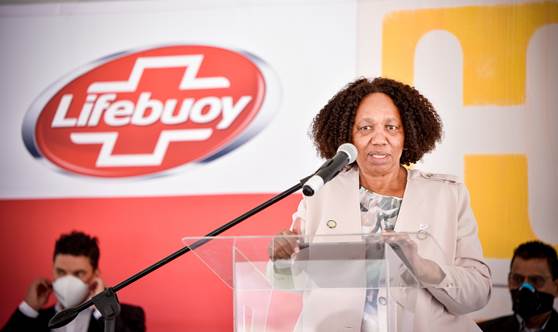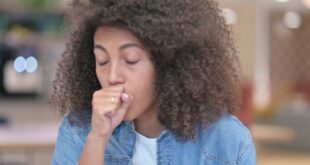This Global Handwashing Day, the Department of Basic Education (DBE), UNICEF, and Lifebuoy are signing a tri-partite declaration of intent to change the way the letter H is taught in the alphabet from “H is for Hat” to “H is for Handwashing”, with the objective to make ‘H’ the universal symbol for Handwashing in all schools nationwide.
Inspired by how children learn their A-B-Cs, the way the letter H is taught has been reimagined, advocating that H stands for Handwashing. This initiative was co-created with global education, health, humanitarian, and behavioural change experts to encourage handwashing habits from a young age.
This follows the international spotlight the World Health Organization (WHO) and UNICEF have placed on the importance of handwashing with soap amid the ongoing Covid-19 pandemic. UNICEF is the global lead on WASH which aims to support the most vulnerable communities with the means to protect their health and environment.
While COVID-19 has elevated the importance of hand hygiene, the need for it goes beyond the virus. This remains a critical concern in South Africa, where children are most impacted by poor hygiene. “Hand hygiene needs to become part of our everyday life, now and beyond the Covid-19 pandemic. Handwashing with soap is the easiest and most cost-effective way to save lives. This needs to be practised and prioritised. We are looking forward to collaborating with Lifebuoy and UNICEF on this vital initiative, integrating hygiene education into early childhood learning,” says Minister of Basic Education, Angie Motshekga.

Lifebuoy has been working together with the Department of Basic Education for a number of years to instill proper handwashing practices. To date, it has reached over three million Grade 1 learners through the National Schools Hygiene and Sanitation Programme. “This year’s Global Handwashing Day is paramount given the pandemic. We’re reaffirming our commitments to ensure handwashing with soap becomes a lesson learned early and one that nobody forgets. We are also proud of the expansion strategy of our handwashing education programme, enabling us to reach 23 000 schools and 12 million learners from Grade R to Matric,” says Keegan Alicks, Beauty & Personal Care Director for Southern Africa, noting the declaration between the DBE, UNICEF, and Lifebuoy will be signed at Phamehlo Primary School in Sebokeng.
“Instilling proper handwashing habits from a young age is the best investment one can make when wanting to save lives due to poor hygiene, with the quickest return on investment,” says Christine Muhigana of UNICEF South Africa. “Stakeholders working together to achieve this is crucial, in that regard.”
Lifebuoy and the Department of Basic Education have elevated hand hygiene by driving social behaviour programmes among learners. During the Covid-19 pandemic, Lifebuoy has donated over 2 million soaps and sanitisers to the value of R40 million to assist staff and learners, and together with UNICEF, it will provide new handwashing stations to several schools.
 Kaboutjie SA Mommy Blogs by Lynne Huysamen
Kaboutjie SA Mommy Blogs by Lynne Huysamen





A really good initiative